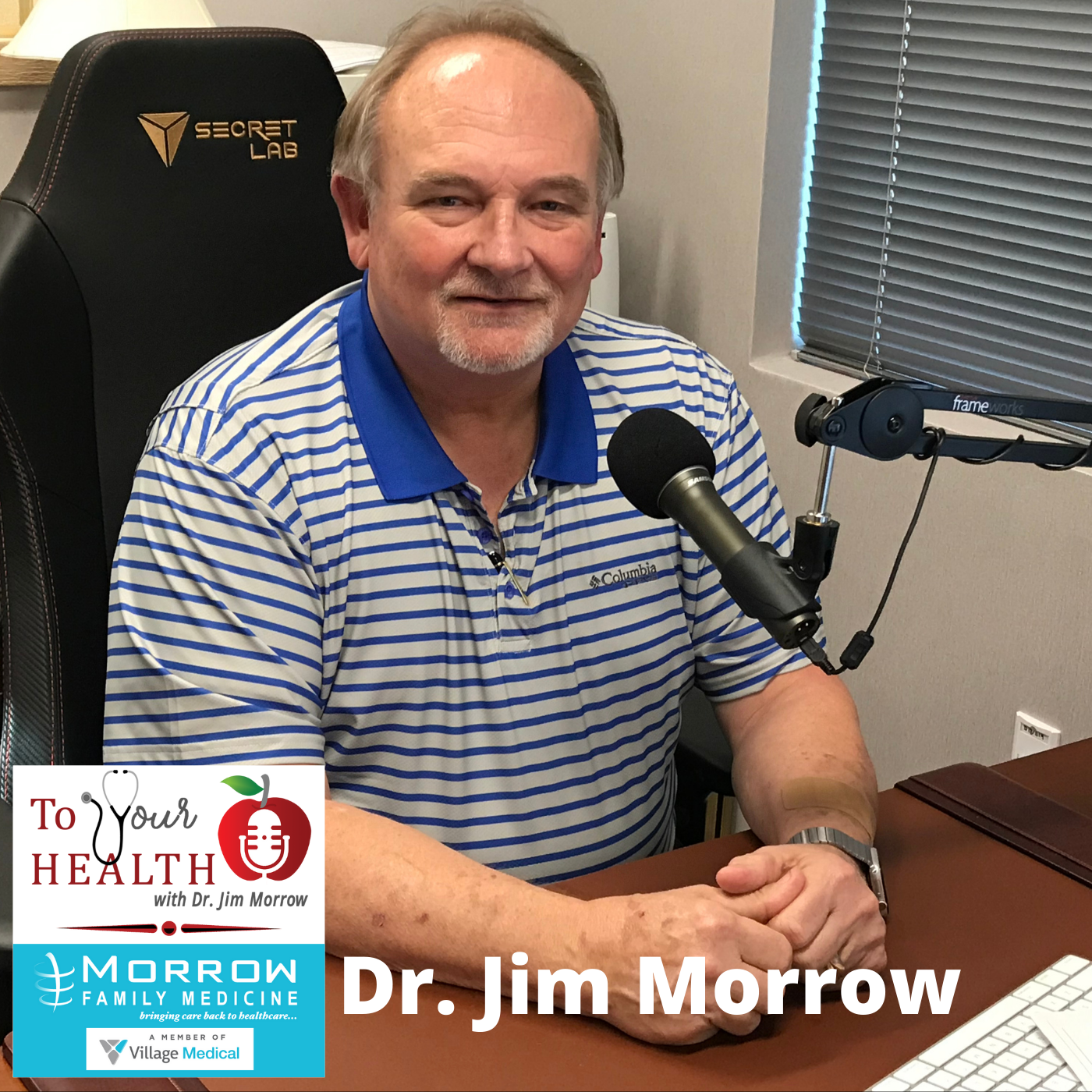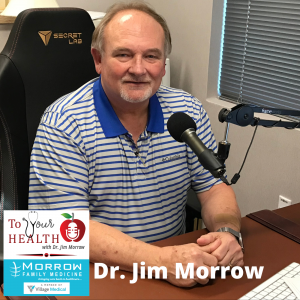
About Morrow Family Medicine, A Member of Village Medical
Morrow Family Medicine, a Member of Village Medical, is an award-winning, state-of-the-art family practice with offices in Cumming and Milton, Georgia. The practice combines healthcare information technology with old-fashioned care to provide the type of care that many are in search of today. Two physicians, three physician assistants and two nurse practitioners are supported by a knowledgeable and friendly staff to make your visit to Morrow Family Medicine, A Member of Village Medical one that will remind you of the way healthcare should be. At Morrow Family Medicine, a Member of Village Medical, we like to say we are “bringing the care back to healthcare!” The practice has been named the “Best of Forsyth” in Family Medicine in all five years of the award, is a three-time consecutive winner of the “Best of North Atlanta” by readers of Appen Media, and the 2019 winner of “Best of Life” in North Fulton County.
Village Medical offers a comprehensive suite of primary care services including preventative care, treatment for illness and injury, and management of chronic conditions such as diabetes, congestive heart failure, chronic obstructive pulmonary disease (COPD) and kidney disease. Atlanta-area patients can learn more about the practice here.
Dr. Jim Morrow, Morrow Family Medicine, and Host of To Your Health with Dr. Jim Morrow
 Dr. Jim Morrow is the founder and CEO of Morrow Family Medicine. He has been a trailblazer and evangelist in healthcare information technology, was named Physician IT Leader of the Year by HIMSS, a HIMSS Davies Award Winner, the Cumming-Forsyth Chamber of Commerce Steve Bloom Award Winner as Entrepreneur of the Year and he received a Phoenix Award as Community Leader of the Year from the Metro Atlanta Chamber of Commerce. He is married to Peggie Morrow and together they founded the Forsyth BYOT Benefit, a charity in Forsyth County to support students in need of technology and devices. They have two Goldendoodles, a gaggle of grandchildren and enjoy life on and around Lake Lanier.
Dr. Jim Morrow is the founder and CEO of Morrow Family Medicine. He has been a trailblazer and evangelist in healthcare information technology, was named Physician IT Leader of the Year by HIMSS, a HIMSS Davies Award Winner, the Cumming-Forsyth Chamber of Commerce Steve Bloom Award Winner as Entrepreneur of the Year and he received a Phoenix Award as Community Leader of the Year from the Metro Atlanta Chamber of Commerce. He is married to Peggie Morrow and together they founded the Forsyth BYOT Benefit, a charity in Forsyth County to support students in need of technology and devices. They have two Goldendoodles, a gaggle of grandchildren and enjoy life on and around Lake Lanier.
Facebook: https://www.facebook.com/MorrowFamMed/
LinkedIn: https://www.linkedin.com/company/7788088/admin/
Twitter: https://twitter.com/toyourhealthMD
The complete show archive of To Your Health with Dr. Jim Morrow addresses a wide range of health and wellness topics, and can be found at www.toyourhealthradio.com.
Dr. Morrow’s Show Notes
Covid-19Vaccine Booster Update
What is a third dose of the coronavirus vaccine?
• A third dose of the mRNA COVID-19 vaccines (Pfizer or Moderna) is identical to the first two doses.
o It can help protect people with weakened immune systems who did not have a strong enough response to the first two doses of one of the mRNA vaccines.
o Such people can get a third dose as soon as 28 days after a second dose.
o The FDA has authorized, and the CDC recommends, that those with
certain medical conditions that suppress the immune system get a third dose of the same brand of COVID-19 vaccine that they initially received.
Who can get a third dose of a COVID-19 vaccine?
Based on CDC recommendations, third vaccine doses are available now for people who are considered moderately or severely immunosuppressed. These would include those who:
- Receive active cancer treatment for tumors or cancers of the blood.
- Received an organ transplant and are taking medicine to suppress the immune system.
- Have either had a stem cell transplant within the last two years or are taking medicine to suppress the immune system.
- Were diagnosed with DiGeorge syndrome or Wiskott-Aldrich syndrome.
- Are diagnosed with HIV and have a high viral load or low CD4 count, or are not currently taking medication to treat HIV.
- Are taking drugs such as high-dose steroids or other medications that may cause severe suppression of the immune system. If you are not sure whether you fit into any of these categories, please contact your medical provider.
When can I get a third dose of COVID-19 vaccine?
- People who have an eligible medical condition that causes a suppressed immune system can receive a third dose of either the Moderna or Pfizer vaccine as soon as 28 days after the second dose.
- Johns Hopkins Medicine is offering a third dose to those who are eligible. Why is the third shot of a COVID-19 vaccine needed?
- The CDC recommends a third dose of the two-shot vaccines (Pfizer and Moderna) for people with certain health conditions to help further protect them from getting severely ill or dying due to COVID-19.
o Some people have conditions or take specific medication doses that can cause them to have a decreased immune system.
o Data suggest that two doses of the mRNA COVID-19 vaccine may not have a strong enough response in these individuals and that they may benefit from a third dose.
How do I know if I need a third dose of COVID- 19 vaccine?
- If you are unsure about whether your health condition or treatment affects your immune system, discuss it with your health care provider, who can help determine if you would benefit from a third dose of COVID-19 vaccine.
- People eligible for Pfizer’s booster include
o those 65 and older and those who live in long-term care facilities,
o have underlying medical conditions
o or are at higher risk of exposure to the virus because of their jobs or institutional settings, or a group that includes health care workers, teachers and prisoners.
Would a third COVID shot have to be the same brand of vaccine I got originally?
- Ideally, yes:
o Your third vaccine dose should be the same type (Pfizer or Moderna) you received when you were first vaccinated.
§ The third shot can be given to you when it has been at least four weeks (28 days) since your second shot if you are considered immunosuppressed based on the criteria determined by the CDC. Can I get an additional COVID-19 shot if I received the Johnson & Johnson vaccine? - Data are still emerging as to whether an additional dose is necessary for individuals who received the Johnson & Johnson COVID-19 vaccine.
o There is no current recommendation for an extra dose for people who received the Johnson & Johnson COVID-19 vaccine, even if they have a qualifying medical condition.
o Watch for information from the CDC. www.hopkinsmedicine.org
Medication Errors
I started using electronic health records on December 18, 1998. At the stroke of midnight, pretty much, we made that change. We did it for financial reasons, not quality reasons. If you had asked me, I would have adamantly told you that I was practicing quality medicine, that I was taking great care of all my patients.
Then in a few months, a report was published: The Institute of Medicine’s report “To Err is Human”. Published in 1999
98,000 deaths are attributable to medication errors every year.
Launched the movement to computerized medical records. It was a slow, laborious process.
Started the move to improve care by sharing records with the entire “care team”. It took years to really start making headway.
Multiple people testified to multiple congressional committees, in and around the Washington DC area.
I had started using electronic records in December 1998, and around 2005 was asked to testify to one such committee.
One of the main points in the report, To Err is Human, was about medication errors. Even to this day, this is a huge problem and people die all too often, or have some bad outcomes all too often, because of changes that doctors make in prescribing and those changes are not accurately relayed to the patient or the caregiver.
Doctors might change things like dosage, drug, instructions as to when and how often they are to be taken.
Pharmacies, especially mail-order pharmacies, will purchase the next cheapest drug equivalent they can on any given day so that when a patient receives a refill, the look and size of the pill or capsule is completely different.
Patients become numb to the fact that medications look different from one fill to the next. Therefore, if a doctor changes a medication or a strength of a current medication, the patient might very well NOT realize that change has been made.
And then drug manufacturers change the way their pills or capsules look because they got a better deal on a blue one versus the brown one they have used for years.
And then my recent experience with medication errors . . .















